Throughout life we are always asking questions, but once the stay-at-home orders normalized the nature of the disease, the sheer number of questions we started asking exploded exponentially. Will I lose my job? When will sports return? When will we have a vaccine? Will I be able to find the gloves, masks, toilet paper, and cleaning supplies that I need? Why does everything feel so chaotic amid everything being halted? Have I saved enough money to weather this storm? Will there be a college football season? This is just a small sampling of the questions we are constantly rehearsing and not without impact.
We were about three weeks into the CoVid19 shut down when I was asked to join a zoom call. This was not a group I regularly interacted with, and of the 19 people on the call, I knew four of them. I was only there to provide an update. The first part of the call was allocated to hearing how everyone was dealing with the corona virus and the new life we were all experiencing. The responses were a mixed bag with some really struggling while others were managing well. During this discussion someone reminded the group that we were in liminal space and this is a space with certain characteristics.
Liminal space, what is this? It was clear that most people on the call knew something of it, and so the conversation moved quickly and somewhat in shorthand. The next thing I knew the discussion was over, and I was still trying to figure out how to spell this new word I had never heard. Because I was a guest on the call, I did not feel the freedom to ask questions especially since so many people were following the conversation, but enough was said to pique my interest. As soon as I hit the leave meeting button, I went straight to Google and began a search for more information on liminal space. After the zoom call, multiple articles, and other discussions I have a better understanding of this idea and its importance as we try to regain our footing regardless of where our communities are in the phased reopening.
Liminal comes from the Latin word limens which means “threshold.” The idea of threshold at first blush seems inconsequential because we cross thresholds multiple times a day primarily in the form of doorways. However, there are other thresholds where the time spent there is much longer. Sometimes these are a part of our cultural rites of passage while others are just a part of life. The period between engagement and the wedding is a threshold. The period between graduation and college or a job is a threshold. The time between an old job and a new one is a liminal space. These past number of weeks during the corona virus shut down is one such transition space as well.
Theologian and author, Richard Rohr defines and reflects on liminal space this way,
It is when you have left, or are about to leave, the tried and true, but have not yet been able to replace it with anything else. It is when you are between your old comfort zone and any possible new answer. If you are not trained in how to hold anxiety, how to live with ambiguity, how to entrust and wait, you will run…anything to flee this terrible cloud of unknowing.
It does not take a rocket scientist to realize that all those questions we are now asking ourselves repeatedly are promoting anxiety, impatience, and our flight reflexes. This only aggravates the massive struggle most of us are encountering as we strive to fulfill our daily responsibilities. Furthermore, since fleeing is not an option, unless you count a walk (or three) around the block, we are hit with a double whammy.
By understanding something about where we are, we may just lighten our burden ever so slightly, but more importantly, we may discover who God knows us to be and who we are supposed to be to others.
Briefly, there are three characteristics of liminal space that are significant and worthy of our consideration.
The first characteristic is limbo because you have left the familiar and are moving into the unfamiliar. Pomp and Circumstance is ringing out all over this country this month as graduations take place in-person or virtually. We are surrounded by graduates. One minute they are a student of an institution and the next they are an alumnus and have entered liminal space. What is coming is unknown. A high school student going onto college has no idea what college will hold for them. High school graduation is a celebratory occasion and that enthusiasm typically holds through the summer, but most graduates have some feelings of uneasiness, anxiety, awkwardness, insecurity, and uncertainty.
These feelings should resonate with all of us because to some degree these have shown up over the past number of weeks as we experience the unprecedented, prolonged shut-down of the country due to CoVid19. This is what happens when you are in limbo. We have left the familiar of our previous lives and entered our homes for an extended stay. In the first two or three weeks of it, something new would come out and sometimes breaking news about the virus would be announced hourly. This only heightened the transitional nature of our new reality. Graduates have a double dose of this since they have matriculated during a pandemic.
The second characteristic of liminal space is that our identity is up for grabs. Uncertainty can mess with us. We are in a culture of questioning that runs over into all areas of our lives which can ultimately cause us to question our purpose. Losing the familiar often unmasks our idols, and if our idol was our job that we can no longer do, we can feel quite lost.
The final characteristic of liminal space is the recognition that it may be one of the most vulnerable places we ever find ourselves. This does not seem so outlandish given the previous two aspects we have been discussing. In normal times many of us live well orchestrated lives that prevent any vulnerabilities from seeping in and when they do, again that desire to run can be overwhelming. But having these feelings in the middle of a nationwide shutdown can create all kinds of responses. On the extreme side, suicides have increased, domestic violence is on the rise, and addictive type behaviors are more prevalent. More muted responses can be emotional withdrawal or lashing out against our spouses, kids, family, and friends or impatience that puts all in a perpetual bad mood. Then there are physical responses that can range from paralysis and the inability to function to panic attacks to endless eating.
Recently, a friend told me that this corona season had been extremely difficult for her. She experienced three full-blown panic attacks. She became convinced she was going to get the virus and that she would die. These are not insignificant episodes for a young, healthy, vibrant, and strong Christian woman.
So, Where Is the Good?
As believers, Romans 8:28 should come to mind quickly, …all things work together for good (ESV). To examine this even more closely, remember what we already know experientially — that it is on the fulcrum of difficulty that souls are made righteous. Rohr puts it this way, all transformation takes place in liminality. He goes on to say that,
…we have to allow ourselves to be drawn out of ‘business as usual’ and remain patiently on the ‘threshold’ where we are betwixt and between the familiar and the completely unknown…This is a good space where genuine newness can begin…It is the realm where God can best get at us because our false certitudes are finally out of the way. This is the sacred space where the old world is able to fall apart, and a bigger world is revealed. If we don’t encounter liminal space in our lives, we start idolizing normalcy.
Who knew that we were in sacred space? Who knew there was a bigger world to be revealed? The messiness and pace of life can distract us from realizing that our “normal” is being deconstructed as we live under CoVid 19 restrictions. I am thinking this is a good thing—not easy, but good. Maybe it is helpful to think about that quote that has been circulating that says,
Before we rush back to our normal lives, we should take time to examine whether our previous lives are worth rushing back to.
Socrates put it more bluntly when he said, “An unexamined life is not worth living.” As the corona virus has slowed, the pace of life is an opportunity that should not be wasted—a reset button of sorts. Since most of life is easing back rather than going full throttle there is more potential for meaningful change in our individual lives. Our hearts have been given the chance to grow during this season. I am not sure how you watch the news without having more empathy for those struggling and more gratitude for our first-responders as well as the blessings that surround us.
This is Not Easy
I do not write these words without some understanding of the difficult challenges many are facing. Honestly examining your life is never easy and this is particularly true when you are under so much pressure. It is hard to discover how God may be shaping you when you do not know where your next paycheck will come from or when you are wrestling with how to pay your mortgage. It is not easy to manage life in isolation. It is not easy to do for others when you are not caring for yourself well.
However, in these strained and strange days as Christians we have hope. Matthew 6: 26-34 tells us that the Lord provides for the birds. Are you not of more value than a bird? And I Peter 2:9 says we are a chosen generation, members of a royal priesthood, a holy nation, His own special people. When I am overwhelmed, scattered, and anxious, these words of Scripture are soothing, calming, and encouraging. God’s word gives me hope.
Closing Thought
There is value in labeling and knowing this space we are living in and through while at the same time understanding its obstacles and opportunities. It is also helpful to be truthful about the challenges that accompany the liminal space of CoVid19—life is hard. These recognitions enable us to be proactive rather than reactive.
Sometimes the idea of being proactive can be exhausting when we are already running on fumes, but this is not necessarily true in this instance. We can be proactive in resting in the knowledge that there is a throne in heaven and it is occupied. We can be proactive in resting in the knowledge that, the Lord is my Shepherd, I shall not want, He leads me beside the still waters and restores my soul (Psalm 23). We can be proactive when we Honor the space between no longer and not yet (Nancy Levin).
Finally, we can be proactive in providing unconditional love and a supportive community because what could be better when struggling and living through a liminal space. Doling out love and grace has been modeled for us perfectly through the life, death, and resurrection of our Savior, Jesus Christ. What has been so freely offered to us, may we in turn offer to others and ourselves—an unconditional love to calm our unsettled spirit and sooth our anxious souls.





